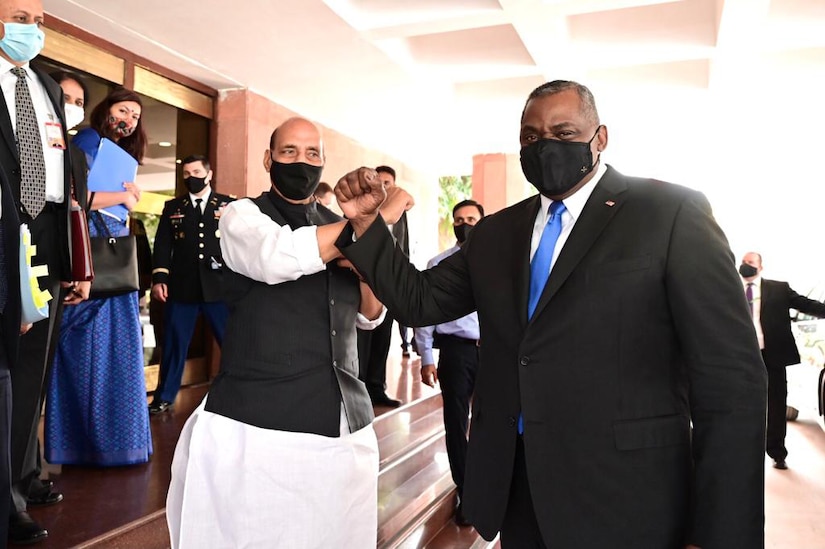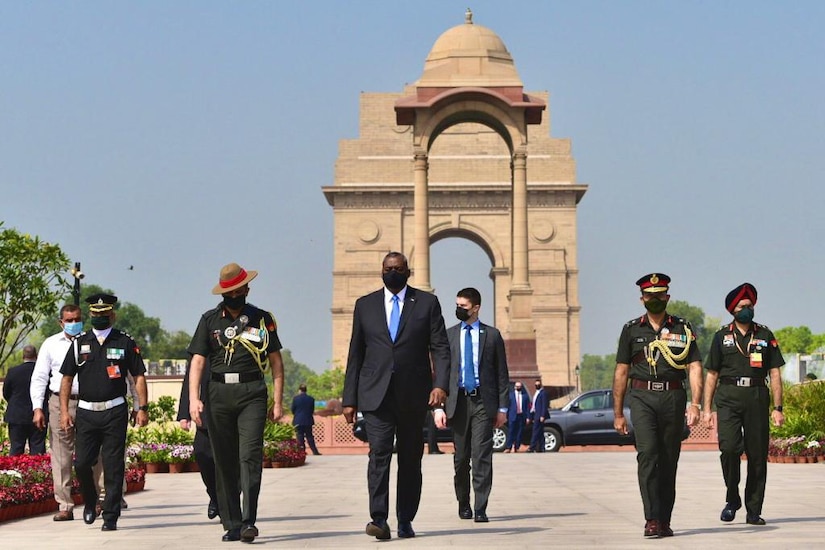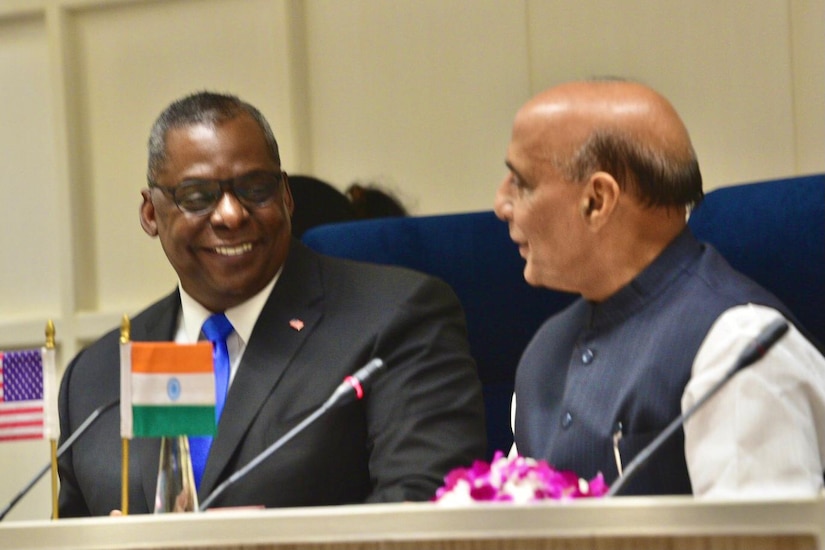March 20, 2021 | , DOD News
Secretary of Defense Lloyd J. Austin III came away from his meetings with Indian officials in New Delhi encouraged by the response from "an increasingly important partner amid today's rapidly shifting international dynamics."

The secretary stressed the U.S. commitment to allies and partners throughout the region. India is a major defense partner to the United States. "I think working together with like-minded countries who have shared interests is the way you check any aggression in any region," the secretary told reporters traveling with him. "And so you can look for us to continue to do that in the future."
India is a key pillar in U.S. strategy in the Indo-Pacific region. Prime Minister Narendra Modi stated that India stands for "freedom of navigation and overflight, unimpeded lawful commerce and adherence to international law."
So does the United States, Austin said. "As the world faces a global pandemic and growing challenges to an open and stable international system, the U.S.-India relationship is a stronghold of a free and open Indo-Pacific region," he said. "And it's clear that the importance of this partnership, and its impact [on] the international rules-based order will only grow in the years ahead."
India – traditionally a non-aligned state – sees converging strategic interests with the United States in this regard. The U.S. and India have begun military exercises together and have worked in some operations together – most notably a counter piracy effort off the coast of East Africa and in the Gulf of Aden.

The secretary met with Indian Defense Minister Rajnath Singh earlier in the day and discussed opportunities to elevate the U.S.-India Major Defense Partnership through regional security cooperation, military-to-military interactions and defense trade.
"These are all mutual agreements in terms of the directions that we're wanting to take," Austin said. "And clearly, in terms of increasing interoperability … more exercises are good. And so, we'll see. But again, we can expect that there will be frequent exchanges and we look forward to the ability to work together to build greater capacity and capability going forward."
Some of the areas the leaders agreed to work in include: information-sharing, logistics cooperation, artificial intelligence, and cooperation in new domains such as space and cyber.

Singh issued a statement after his meeting with Austin that India is "keen to work together to realize the full potential of the India-US comprehensive global strategic partnership."
Singh said the two men "reviewed the wide gamut of bilateral and multilateral exercises and agreed to pursue enhanced cooperation with the U.S. Indo-Pacific Command, Central Command and Africa Command."
Both men stated that the India-U.S. relationship could be one of the defining partnerships of the 21st century.








No comments:
Post a Comment